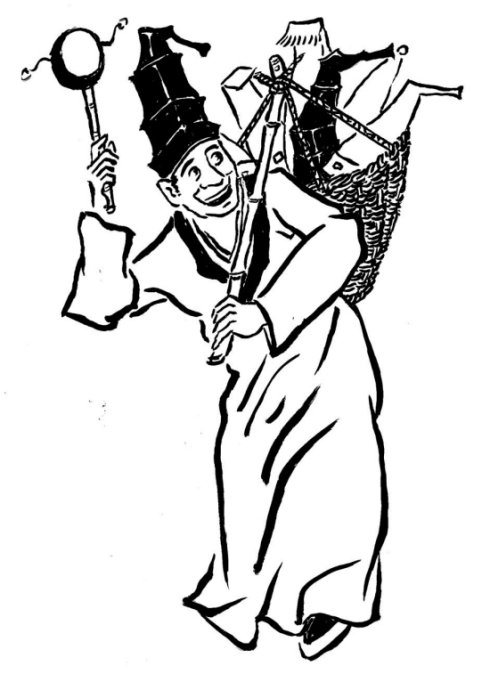一个学生对老师说自己已为别人準备好了许多“高帽子”(即阿谀奉承的话),老师责骂了他。学生告诉老师很少有人会像老师那样不喜欢听奉承的话,老师听了后十分高兴,夸讚学生。殊不知自己已经被戴上了“高帽子”。
基本介绍
- 作品名称:高帽一百
- 文学体裁:文言文
原文
俗以喜人面谀者曰"喜戴高帽".有京朝官出仕于外者,往别其师·师日:"外官不易为,宜慎之·''其人曰:"某备有高帽一百,适人辄送其一,当不至所龃龉也·''师怒曰:"吾辈直道事人,何须如此!''其人曰:"天下不喜戴高帽如吾师者,能有几人欤?''师颔其首曰:"汝言不为无见·''其人出,语人曰:"吾高帽一百,今止存九十九矣·''
译文
通常把喜欢别人当面阿谀的人称为:喜欢戴高帽子。有一个人準备去外省做官,去和他的老师告别。老师说:“外省的官不好做,你应该谨慎从事。”那人说:“我準备了一百顶高帽,碰到人就送人一顶,应当不至于有矛盾而不快。”老师很生气,说:“我们应以忠直之道对待别人,为什幺一定要这样做呢?”那人说:“天下像老师这样不喜欢戴高帽的人,能有几个啊?”老师点头说:“你的话也不是没有见识。”那人出来后,告诉别人说:“我一百顶高帽,现在只剩下九十九顶了。”
注释
- 俗:通常。
- 面:当面。
- 谀:奉承。
- 喜:喜爱,喜欢。
- 往别:告别。
- 易:好,容易。
- 为:做。
- 适:遇到,逢到。
- 辄:就。
- 龃龉(jǔyǔ):上下牙齿不齐。比喻意见不合,产生矛盾。
- 怒:发怒,生气。
- 直道:直率的方式。事:对待。
- 欤:呢。句末疑问语气词。
- 颔首:点头。
- 语:告诉。
- 见:见识
- 其:他的。
- 如此:这样。
- 止:通“只”,只有。
寓意
这个故事讽刺了那些不知不觉中就已经戴上高帽的人
这个故事说明当局者迷。后用以比喻对人说恭维的话。
道理:生活中,我们要学会不去听那些阿谀奉承的虚假的话,要知道良药苦口利于病,忠言逆耳利于行。
英语翻译
we call it "courtier" when flattering someone in the spot. a student say goodbye to his teacher(senior officer) before he leave Beijing for taking a post in another place.The teacher say:"it is troublesome to be a officer in the provinceal capital.
the student reply:" Don't worry, master, I have been ready one hundred courtiers and I will give the person I met one courtier,which must satisfy the local persons.
The teacher scold the student seriously:"we are all the well-educated persons, how can you do such a thing?
The student pretend to show the embarrassing face and say:"there are few persons who dislike being flattered and there are few perons like you.
The teacher feel happy after listening, nodding and say:"you are so correct!
This student tells his friends:"I have prepared for one hundred courtiers while they are 99 ones left.”

